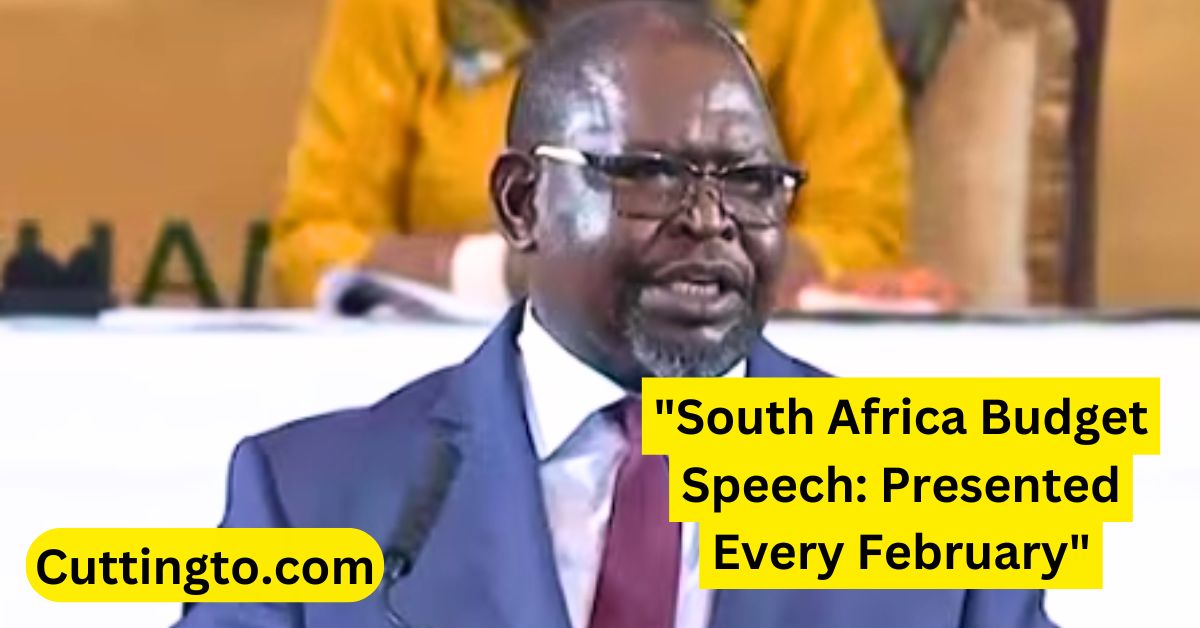In What Month Of Every Year Does The Minister Of Finance Present The National Budget To Parliament

Every year, South Africa’s Minister of Finance delivers one of the most anticipated speeches in the country—the National Budget Speech. This occurs in February and outlines the government’s spending plans, economic projections, and fiscal policies for the upcoming financial year. The budget directly impacts citizens, businesses, and investors, making it a crucial event for anyone interested in the country’s economic future.
This article provides an in-depth exploration of the National Budget’s significance, its impact on the South African economy, and the key insights it offers to citizens and businesses alike.
Read More: Blacklisted Vehicle Finance Same Day Approval No Deposit
The Importance of the National Budget
The National Budget is more than just an annual financial report. It serves several key purposes:
- Economic Planning: It helps the government allocate resources effectively, ensuring sustainable economic growth.
- Social Development: The budget determines funding for essential services such as education, healthcare, and social grants.
- Investor Confidence: Businesses and investors use the budget’s outlook to make informed financial decisions.
- Debt and Deficit Management: The budget outlines how the government plans to handle debt and close fiscal gaps.
The Budget Process in South Africa
The budget cycle involves various stages, from preparation to implementation. Here’s an overview of how it unfolds:
- Preparation (Mid-Year to January): Government departments submit funding requests, and the National Treasury compiles expenditure frameworks.
- Presentation (February): The Minister of Finance presents the budget to Parliament, detailing revenue sources and expenditure priorities.
- Parliamentary Review (March-April): The budget is debated and refined before approval.
- Implementation (April Onward): Departments receive allocated funds, and financial oversight ensures compliance.
Read More: Who Is The Minister Of Finance In South Africa 2025
Real-World Impact: A Case Study
In 2023, the budget allocated R227 billion to social grants, benefiting over 18 million South Africans. This showcased the government’s commitment to social welfare despite fiscal constraints. However, budget cuts in infrastructure spending raised concerns among industry leaders, highlighting the difficult balancing act between social support and economic growth.
Key Highlights from Past Budgets
- 2021: COVID-19 relief funds dominated spending, with R19.3 billion allocated for vaccine procurement.
- 2022: A focus on economic recovery, including tax incentives for small businesses.
- 2023: Increased spending on energy infrastructure to combat load shedding.
- 2024: Higher sin taxes and adjustments to personal income tax brackets.
What to Expect in the 2025 Budget
Given the current economic climate, key focus areas could include:
- Further tax reforms to boost revenue collection.
- Increased public sector efficiency to reduce unnecessary spending.
- Additional support for struggling state-owned enterprises (SOEs).
- Investment in renewable energy to reduce reliance on Eskom.
Conclusion
The South African National Budget is a crucial tool for shaping the country’s economic trajectory. Delivered every February, it offers a roadmap for government spending, taxation, and investment priorities. Understanding the budget helps individuals and businesses prepare for potential economic shifts, ensuring informed financial planning and decision-making.
Sources & References
- National Treasury South Africa (www.treasury.gov.za)
- South African Reserve Bank Reports (www.resbank.co.za)
- Previous Budget Speech Transcripts (www.gov.za)
- News Analysis from BusinessTech, Fin24, and Reuters




